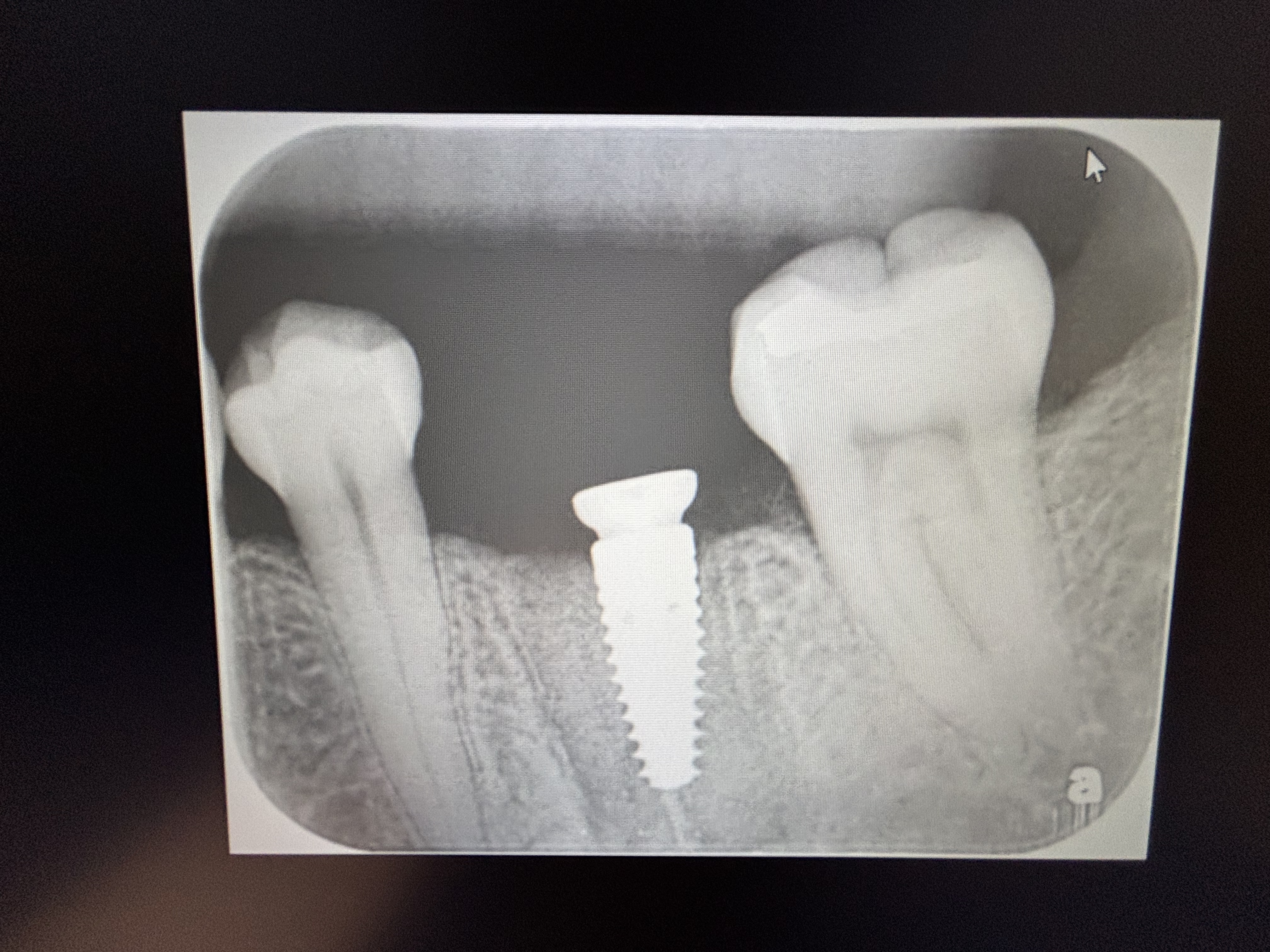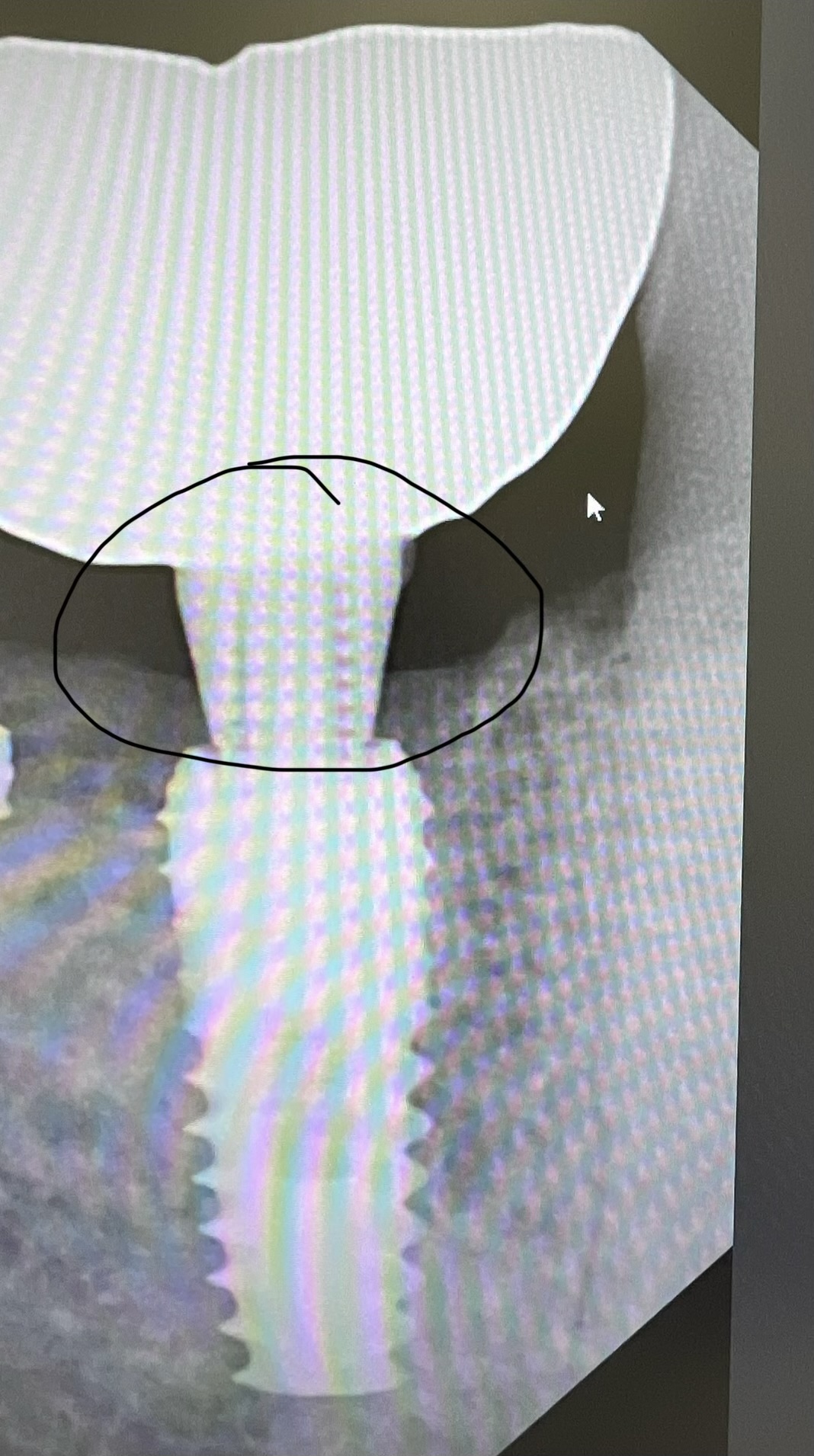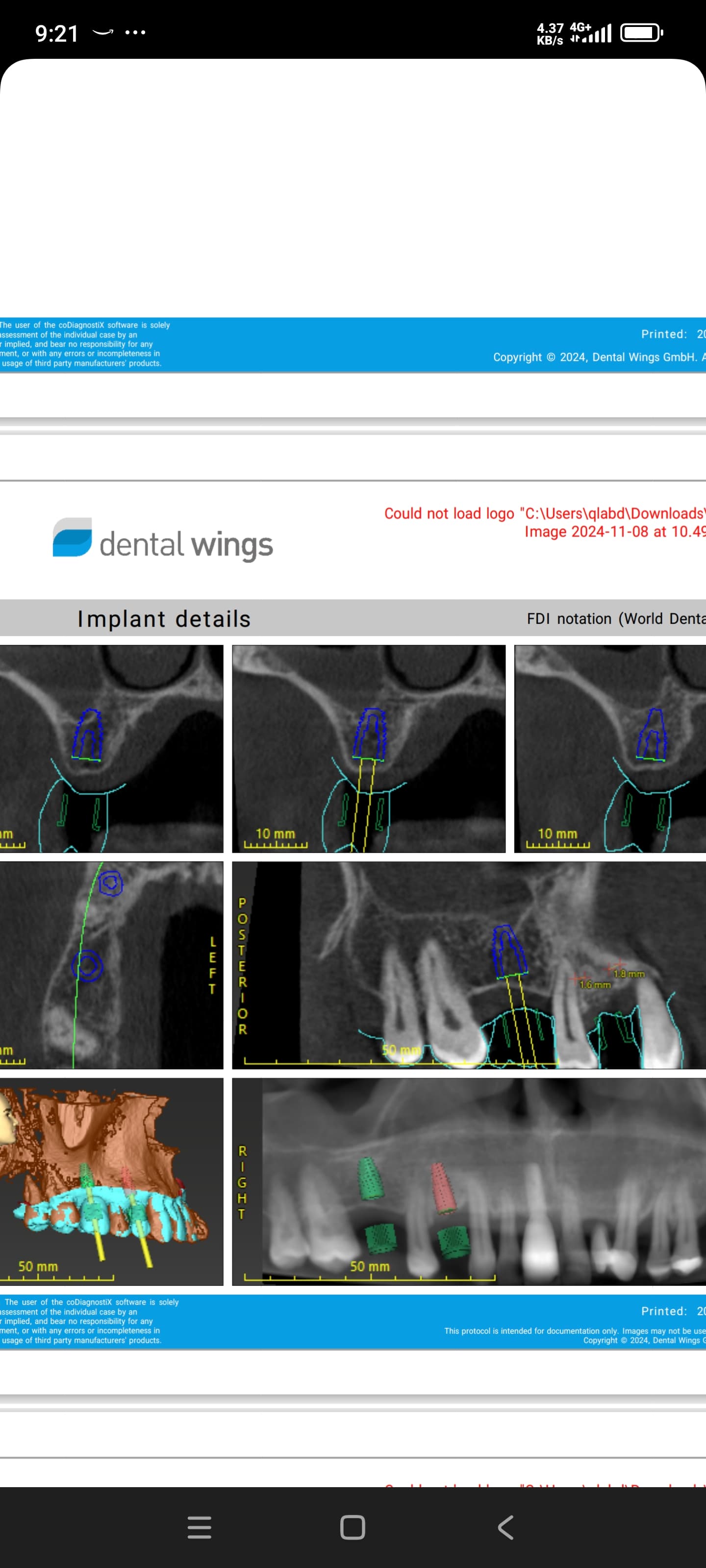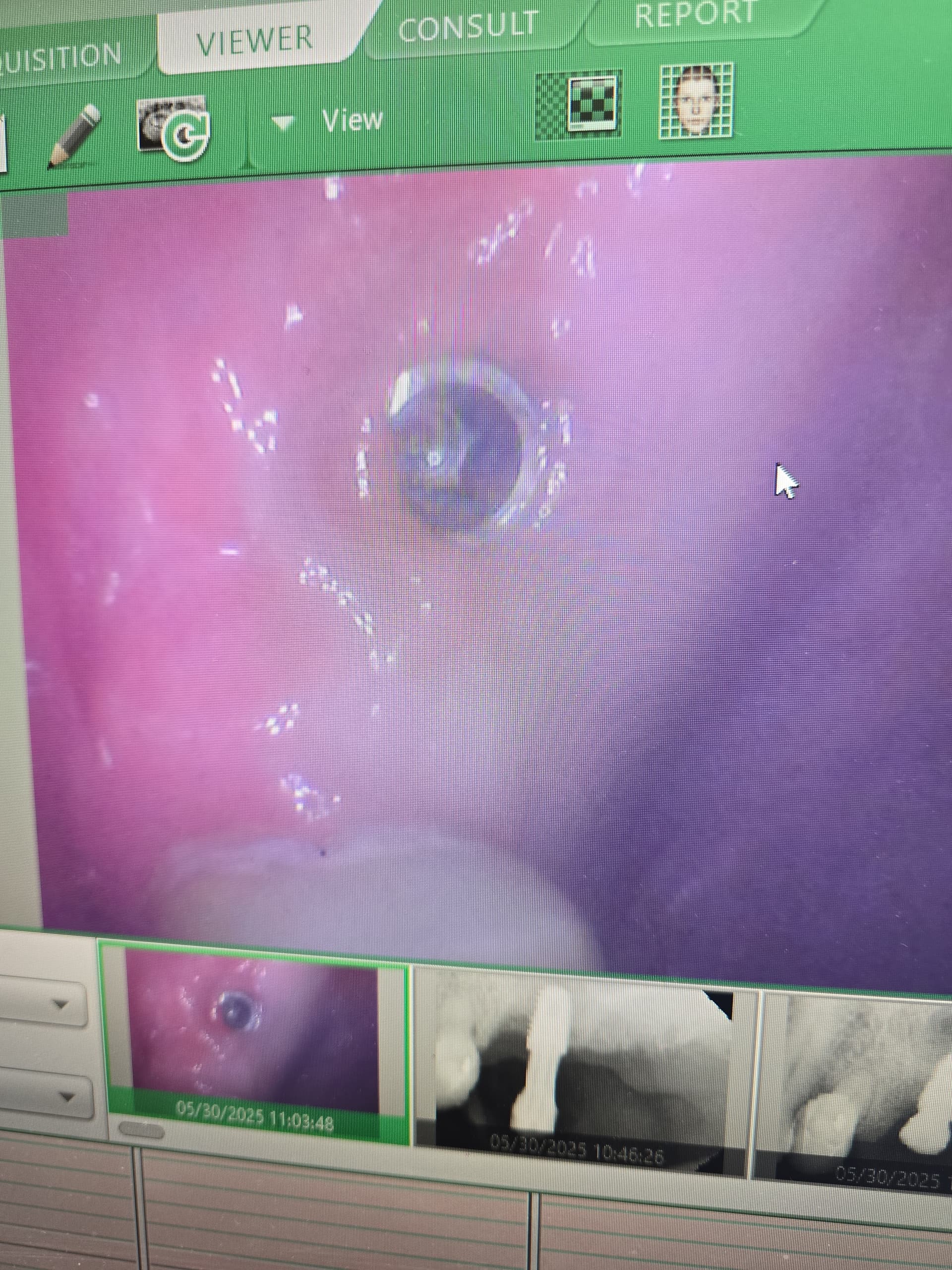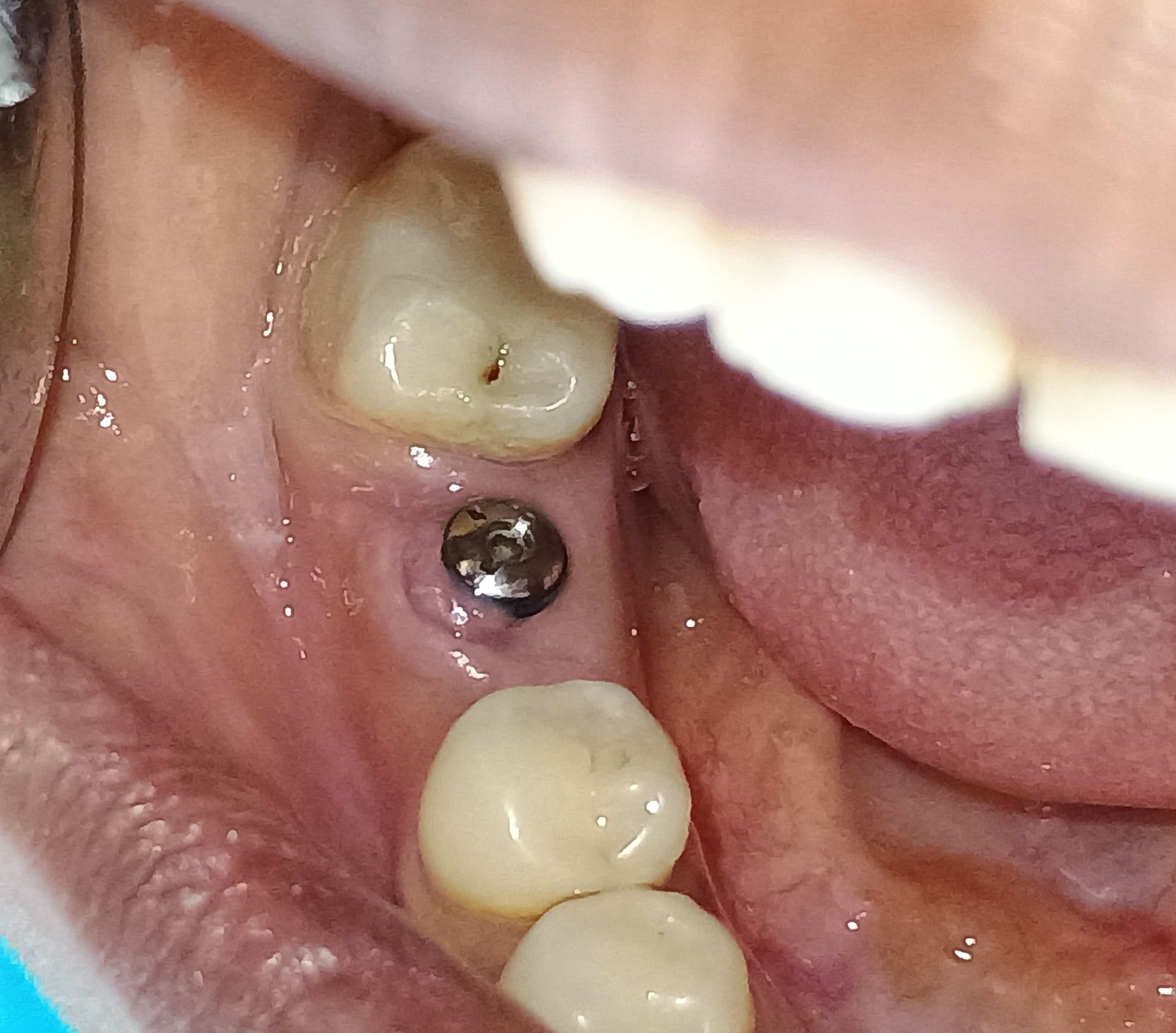How Many Implants Are Needed for an Overdenture?
Joe, a prospective dental implant patient, asks:
I am 53 years old and have had dentures since I was 20 due to poor dental care as a child and young adult. I have been given two different opinions regarding dental implants. One dentist wants to place 12 implants — (6 upper & 6 lower implants)- and place overdentures on the implants. The other dentist says this is totally wrong, that it is unnecessary to place so many implants for overdentures. He says I only need 2 implants for a lower overdenture and 4 for an upper. How do I know who is right? Do you have any insight? And what about a fixed bridge vs. this overdenture solution?
19 Comments on How Many Implants Are Needed for an Overdenture?
New comments are currently closed for this post.
doct. med.doct. dent. Ale
10/21/2008
Personally, i think the first question is how much osseous mass i have in lower jaw and in the upper maxilla etc. etc.
Second: each of us has severals planes tho threat theese problems.
I work, in Italy, with one piece implants, and I dont need abutemens or other mechanical things. What comes out of osseous-mucosa is a piece like a dental post.
Anyway, normally I put 6 to 8 implants to give a real and durability time for a stabile overdentureand not a mobile overdenture.
Dr. R.B. Stanton
10/21/2008
This is really up to the individual doctor and what he/she is comfortable with but I have done many overdentures with two implants and they have performed fine. My normal standard for an overdenture is two implants. With four implants, the dentist can create a denture with a smaller acrylic base so it won't cover the entire palate. With 6 implants, I would not do an overdenture. I would do a fixed hybrid. It doesn't make sense to me to spend that much money on implants for an overdenture. That would be like putting a porsche engine in a toyota body.
Steven J Schwartz, DDS
10/21/2008
I would rather see four implants supporting an overdenture. Yes, two will retain the denture, but the potential loss of an implant means loss of the ability to wear the denture. With four implants, loss of an implant does not equal loss of the prosthesis, hence the "survivability" of the CASE is not dependent on the survivability of either one of two implants. This represents a kind of "insurance."
Dr. Fotek
10/21/2008
This really goes back to the fundamental question of the purpose of the dental implant. If we see implants as a ways of preventing the denture from moving freely, then 2-4 implants will suffice. However, if we see implants as a means of slowing down the bone resorption, then a greater amount of implants will be needed. Also, are you considering palatal coverage?
As clinicians, I believe we need to do more for the patients than place implants to prevent denture movement. Patients did not go through dental training and do not understand the mechanism of bone resportion following tooth loss and they probably never heard of Wolff's law. We need to treat our patients but more importantly, we need to prevent future diseases/malformations from occurring. We are able to achieve this with strategic dental implant placement.
Empirical Medicine
10/21/2008
With out a comprehensive exam and calibrated radiographs, no one here can properly advise you on the specifics of your treatment needs.
It is likely that all of the doctors you have seen are correct and honest, but have slightly different treatment goals.
More importantly, it would seem you don't have a surgeon that you trust... When you have a solid doctor patient relationship, the questions, concerns and differences of opinion should be easily explained and addressed by your trusted health care adviser.
If you don't have that, as I suspect you don't.
I would seek out another surgeon until you do find that comfort producing relationship.
Being forced to the internet to ask these questions is a huge red flag to me.
Dr. Gerald Rudick
10/21/2008
Dear Joe.... your questions are excellent, and deserve to be answered; but you must realize that you are asking information from dental implant experts who have almost no information to go on in your case ,so it is difficult to give you a predictable prognosis and advice you how many implants should be used.
The fact that you are relatively young, 53 is good, but being edentulous for 33 years tells us that the remaining bone that have been supporting dentures for so many years might have taken a tremendous beating, and may show great resorption.....where the possibility of placing implants in the conventional matter may not be possible.Are you a smoker; do you have a sturdy bone structure; do you suffer from other health issues?
In my experience, the maxilla ( upper jaw) may have bone that can resemble anything from styrofoam to pine (if you are lucky).
The lower jaw is a much denser bone and is usually more suitable for implants....but how much bone is left, so that there is no risk of damaging underlying nerves,etc.If the implants to be placed in the lower jaw must be short, then you must have more of them for load sharing.
As far as the number of implants to placed....my philosophy is "more is better". Once your surgeon has you prepared for the surgery, it becomes more cost effective for him to give you more implants, as everything is there in front of him while performing the surgery...the only difference is the additional cost of some extra fixtures.The extra implants will enhance the bone they are sitting in and hopefully will allow the principles of Wolf's Law to apply ..... let the bone be stressed within physiologic limits as we do with muscle building, and it normally gets stronger and its architecture remodels itself.
It would be best to get a CT Scan, so that your situation is well visuallized, and a proper treatment plan can be worked out for you.
Do not look for bargains by accepting the minimal number of implants inserted.....allow for possible implant failures in the future, and by having more than the minimal requirement of implants placed at the time of surgery will insure you to have a longer survival for the prosthesis, and less stress on each individual implant when a load is placed on them
Gerlad Rudick dds (AF)AAID, DICOI
JRB
10/21/2008
It all depends on a certain criteria....how much bone do you have? how dense is your bone? How stable is your bone? How strong is your bite? There are multiple questions that should be answered to determine how many you need.
I have seen 2 on lower and 4 on upper work very well, and I have seen it fail....traditionally 4 in the lower and 6 in the upper of NORMAL implants (not MINIS) should be good enough to support your case, based on the info given....however you still need to consider all the above questions....
Good luck!
dr.prashant chopra
10/21/2008
hi! morning first of all lets try to get to the base of problem the patietnt gives a history loosing all teeth at very early part of his life, so lets first concentrate on his medical and dental background once lets rule out if he is having any systemic problems due to which such emmense loss of bone has happened, the patient has been wearing dentures from a very early stage lets evaluate what quality of bone he has now(width& height) also what kind of muscular tone he has (facial muscles) after all these have been evaluated then comes the queston of how many implants and where since radiographic picture is not very clear giving a definate conclusion to problem will be not right stratragic positioning of implants can give him option of fixed bridges or hybrid denture.
hope a good decision is made.
dr. prashant chopra delhi
Dr. Mesgarzadeh Ali hosse
10/24/2008
In my idea as an oral & maxillo facial surgeon it is depend on the amount of the bone, patient economic condition , bite force , but in lower jaw 2 implants are minimum but for prevention of rotational forces 4 implants will creates a quadriangular shape for abutments and it will be better than 2.Actually we use removeble overdenture for its cost effectivity.
Good luck
Duke Aldridge
10/25/2008
Joe,
You will receive many opinions from various clinicians with varying amounts of experience. I would seek out those who have trained with probably one of the world's most reknown implantologist, Carl Misch. His most recent text book is in its 7th print in less than two years and is the number one best seller of all time in dentistry surpassing Peter Dawson's occlusion, 5th edition. In general and without knowing anything about your current bone height, width, bone density, upper to lower jaw relationship, arch form and a complete examination inclusive of health history, social history (smoking, diabetes - controlled?, etc) and so much more there is really nobody that can give you accurate data. However, with that being said the very minimum number of implants that would be placed in my mother or father would be 6 (six) in the upper jaw and 4 (four) in the lower jaw. Your concerns are very much appreciated and the best suggestion I can give you is find out how much training your prospective surgeon and restorative clinicians have. In other words look them in the eye and ask them where they got their training, how many cases have they done, references you can speak to (those that have been in the mouth for greater than 10 years), how many hours of training do they have at an accredited institution and pictures of cases completed. Further, ask about the use of CT technology and do they use it routinely with this many implants, sinus augmentation needed? sinus pathology and so, so much more. In closing stay away from mini implants as these are a disaster. If you contact the Florida Board of Dentistry you will discover that there are over 1500 hundred cases under investigation that involve the use of mini implants. What grade of alloy does your implant surgeon use? The list goes on and on and on. Please feel free to forward scans, x-rays or just call and I will gladly answer any questions you may have. In closing, do not shop for such a medical service as you will more than likely regret it later and end up with a tremendous compromise. If it's my heart that needs to be replaced I really want a competent individual to treat me. There are a lot of great clincians who can certainly handle your case just ask a lot of questions and put the clinician on the spot.... Ask tough questions...........Good Luck
Duke Aldridge, DDS, MAGD, MICOI
Assistant Professor, OHSU
John Boain
10/30/2008
First off, the dentist bashing the other dentist ought to be shot. Secondly, it depends on all of the above already discussed as well as treatment goals: retentive vs. supportive. I do feel that two implants with resilient attachments should be offered as a treatment option on every eligible patient needing a full mandibular denture. The more implants you are able to place the more options you have, ie hybrid prosthesis, but this does not preclude two implants with resilient attachments.
Dr John A Murray
11/9/2008
These two treatments are quite different and NOT related to bone density etc.
The Overdentures on the lower number of implants are implant-retained but tissue borne. That means the implants hold them in, but they still sit and press on your gums.
The greater number of implants would allow the dentures to be "Implant supported" that is the bite is borne by the implants rather than the gum , a more natural but more expensive solution.
J A M Specialist in Prosthodontics
R. Hughes
11/9/2008
Two or more. You should also consider the crown (prosthesis) implant ratio for cantilever effect and the position of said implants due to flex of the mand. Also consider the thickness of the prosthesis, is it thich enough for strength and interocclusal space for the same reasons. Do you have enough soace for a bar or do you need o-rings, locators etc.. And consider the length, width of the implants
Nailesh Gandhi
11/10/2008
In my 20 years plus practice many overdentures have been made and I have been comfortable with my patients planning of implant prosthesis as follows.Minimum Two implants for lower overdenture and minimum four for upper.5 to 6 implants for hybrid and minimum 8 in any jaw for fixed prosthesis.I still believe it varies with judgment of doctors depending on several factors.
Satyabodh Guttal
11/11/2008
The best design to have an implant retained overdenture would be with four implants connected with a bar. It gives greater stability and a very limited range of prosthesis motion.
Dr.Guttal. Dharwad
Dr. Morales
12/10/2008
The answer is none, you should better seek for a fixed solution, you are only 53 years old and you don’t want to be on dentures the rest of your live, because an overdenture is an expensive well retained denture.
Overdentures should be retained, but not supported by implants, that means that if the overdenture is properly built you should expect a certain degree of mobility at your overdenture because the chewing forces are supported mainly by your soft mucosa and the implants act only as retentive devices in extreme jaw movements. The later can be achieved with a maximum of two implants but never with a bar resting on three or more implants.
I know many of my colleagues will argue bitterly against my post, specially they will tell you that I don’t know how much remaining bone do you have and that you will need the buccal flap of your denture to support your facial tissues. But all this can be treated with proper planning and grafting.
If you are still planning to get overdentures the two implants solution is a much wiser approach for biomechanical reasons, but if you change your mind go for the same twelve implants you where offered an ask for a fixed solution.
Dr. brijesh patel
6/29/2009
hi.I think 4 implant supporting the overdenture is good, 2 may be good for rention only.
In upper jaw, i feel we should review about the possibility for overdenture vs.fix for long term success and maintanace of prosthesis.
As our respected implantguru Dr.nailash gandhi says
it always depends on dentist's clinical and radiographic factors and patient's motivation.
It also varies according to the patient's acceptance interm of succsess.
David Dick
7/16/2011
Is there any alternative that eliminates the requirement for that upper palate (gaging) cover?
Ken Clifford
7/17/2011
David - Upper denture without the palate works fine in many cases. Depends on the bone. Find a dentist who uses Cone Beam Computerized Tomography who can analyze the bone accurately in three dimensions and go from there. Mini implants or conventional implants can work for this situation.










